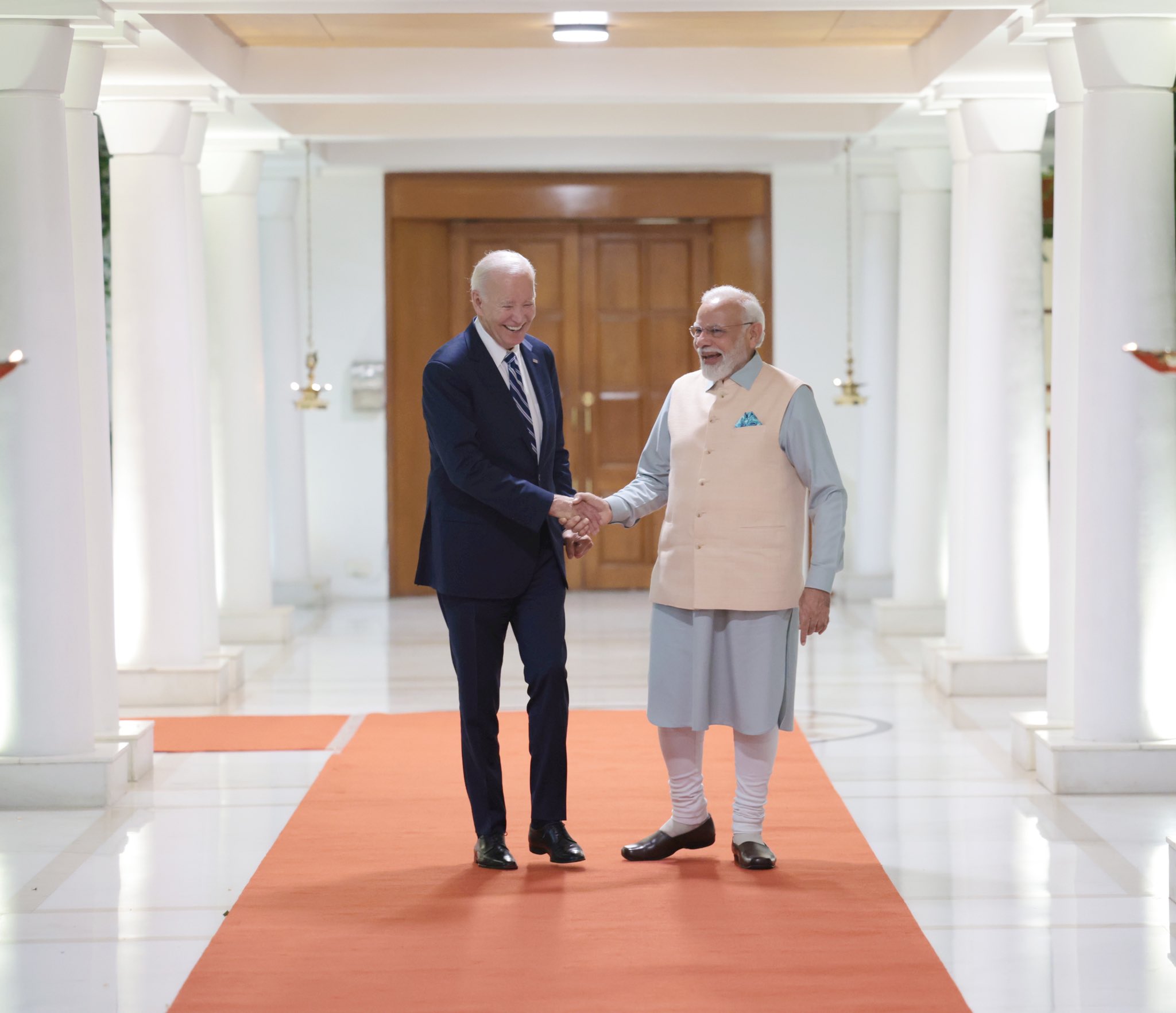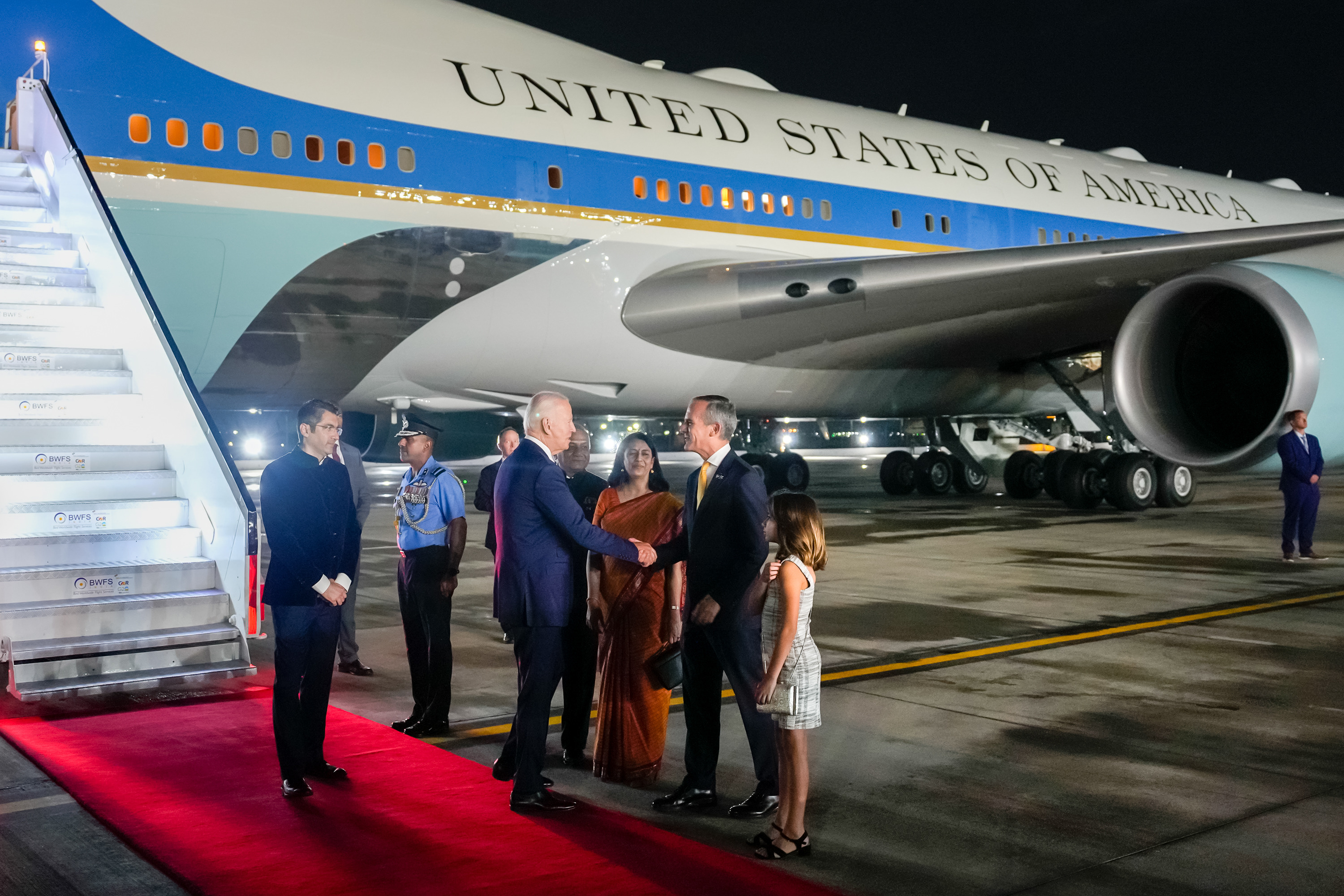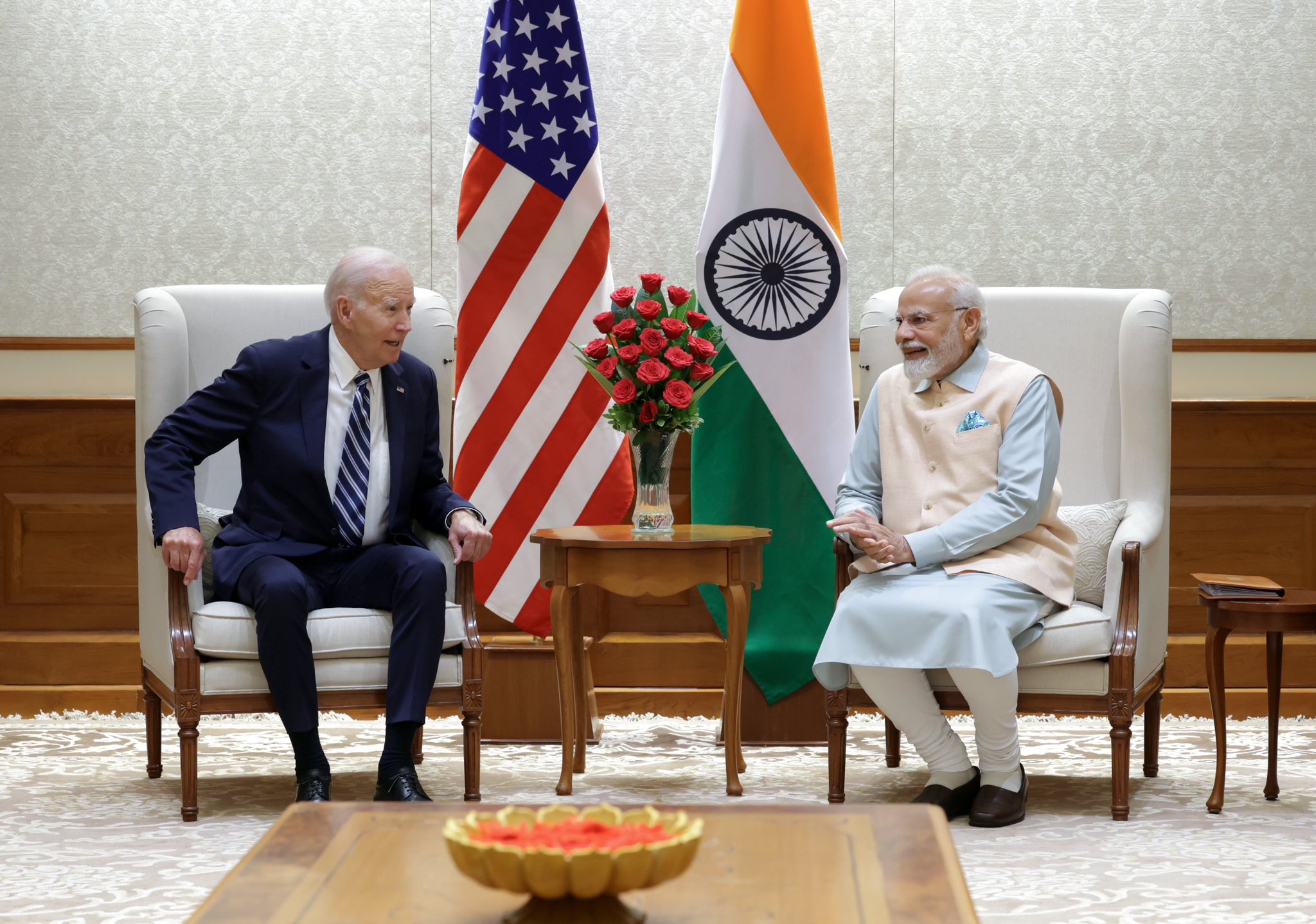India reached for the moon and achieved a perfect landing this year, ahead of the G20 Summit (September 9-10) and just a week after Independence Day. Today, as President of the United States of America Joe Biden shook hands with Indian Prime Minister Narendra Modi, the possibility of sending an Indian astronaut to the International Space Station (ISS) took shape.
India and the US said today that they had started talks to put in place a strategic framework for human space flight by the year-end, as they planned to send an Indian astronaut to the International Space Station in 2024.
President Joe Biden also congratulated Prime Minister Narendra Modi on the historic landing of Chandrayaan-3 at the south polar region of the moon and the success of Aditya-L1 solar mission, both carried out by the Indian Space Research Organisation (ISRO).
“Determined to deepen our partnership in outer space exploration, ISRO and the National Aeronautics and Space Administration (NASA) have commenced discussions on modalities, capacity building, and training for mounting a joint effort to the International Space Station in 2024, and are continuing efforts to finalise a strategic framework for human space flight co-operation by the end of 2023,” said a joint statement, issued after the 52-minute talks between the two leaders.
During the state visit of Modi to the US in June, Biden had announced that India and the US were collaborating to send an astronaut to the ISS in 2024.
This evening, Biden arrived in New Delhi and was directly transported to the official residence of Modi at Lok Kalyan Marg, where they had their bilateral talks on the eve of the G20 Summit. Biden arrived in Delhi around 7pm on his first visit to India as the US president. He was greeted at the airport with songs and a musical show.
After the two leaders’ talks, the joint statement said, “India and the United States also intend to increase co-ordination on planetary defence to protect planet Earth and space assets from the impact of asteroids and near-Earth objects, including US support for India’s participation in asteroid detection and tracking via the Minor Planet Center.”
It added, “Having set a course to reach new frontiers across all sectors of space co-operation, the leaders welcomed efforts towards establishment of a Working Group for commercial space collaboration under the existing India-US Civil Space Joint Working Group.”
According to the joint statement, the US reiterated its commitment to working together with India in the quantum domain, both bilaterally and through the Quantum Entanglement Exchange, a platform to facilitate international quantum exchange opportunities. The two leaders welcomed the participation of SN Bose National Centre for Basic Sciences as a member of the Quantum Economic Development Consortium.
It was also recognised that the Indian Institute of Technology (IIT) Bombay joined the Chicago Quantum Exchange as an international partner.
Besides space travel and science, the two leaders talked about the shared goals of accelerating sustainable development; bolstering multilateral co-operation; and building consensus around inclusive economic policies to address the greatest global challenges.
Modi and Biden vowed to “deepen and diversify” the bilateral major defence partnership, while welcoming the forward movement in India’s procurement of 31 drones and joint development of jet engines. They also deliberated on co-operation in nuclear energy, and critical and emerging technologies such as 6G and Artificial Intelligence.





